When it comes to HOAs and insurance, the question isn’t “Does our HOA need insurance?” The real question should be “Which types of insurance does our HOA need?”
There are so many different types of coverage that it can be overwhelming! Because of this, we hear the question a lot: “How do I know what coverage my HOA should have?”
Only about 25% of homeowners’ associations maintain adequate coverage, and most are not sure if what they have is what they need! They may be overpaying or underinsured.
Proper insurance is one of the best investments your HOA can make. Work with insurance agents who specialize in HOA coverage. Blue Lime Insurance Group can help you customize a plan that works for your community. Although coverages may seem the same, each association is different.
Below are several types of insurance coverage that every HOA should carry to be protected against almost any issue that could arise. Often, these coverages are packaged together by insurance carriers to save money. Some may also offer many “throw-in coverages” at no additional cost.
Property Insurance
If your association owns property, it needs to be protected. This could include physical property, such as an entry gate, or a clubhouse and personal property located therein (such as the contents of the clubhouse or tools and equipment owned by the association).
This type of coverage insures the property against vandalism, theft, and damage from fires, storms, and natural disasters. However, keep in mind that flood coverage is not included in standard property insurance. See below for more.
Real World Example: In the middle of the night, someone vandalizes the front entry gate system, the monument, and the walls at the entrance of your community. It could cost tens of thousands of dollars to fix everything damaged! Your property coverage may cover this vandalism.
General Liability Insurance
This covers the association against accidents or injuries to others that happen on HOA property, whether that loss is to personal property or personal injury. Put simply, this is “slip and fall” coverage. If someone claims the association was at fault for something that happened to them, this coverage may protect you from their judgement and defense costs.
Real World Example: One summer afternoon, many families were playing at the community pool. One child was running around the pool, slipped on a wet spot, and broke his arm on the pool deck. Despite the fact that you have pool rules that state “No Running”, “Adult Supervision Required”, “No Lifeguard on Duty,” and “Swim at Your Own Risk,” the family sues the association and claims the HOA still did not take enough reasonable measures to protect the patrons of the pool. General Liability coverage may protect you from the defense costs of this case, as well as any potential financial settlement or judgement made.
Directors and Officers Liability Insurance
Often referred to as D&O coverage, this covers HOA officers and trustees from liability associated with performing their duties for the association. It should be noted that this type of policy only covers against accidental actions; it does not cover willful or malicious acts.
Real World Example: A homeowner has submitted an improvement request to replace their shingle roof with a tile roof. The DCCRs do not specifically restrict the installation of a tile roof, but they do specify that all homes must follow the common design aesthetic of the community. Because of this, the request was denied. The homeowner then sues the association in an attempt to overturn the decision. In this case, D&O coverage may cover the defense costs or any financial settlement involved.
Crime/Fidelity Insurance
This protects the association from theft by employees, contractors, volunteers, or other representatives or agents of the association. Separate from D&O coverage, this specifically covers malicious acts of crime or fraud.
Real World Example: A social committee member manages the Yard of the Month awards. They are given access to the association’s funds to order gift cards for the contest winners. They decide to use those funds to also buy $1000 in gift cards each month for themselves, hoping no one will notice. Crime coverage could help the association recover that stolen amount.
Hired and Non-Owned Auto
This is auto property and liability coverage that covers the association from liability from a third-party claim from someone driving on behalf of the association. This may include hired vendors or drivers as well as volunteers that are doing any driving on behalf of the association. This is not meant to cover an association’s owned vehicles, if they have any. For that, they would need a commercial auto policy.
Real World Example: The association has a homeowner volunteer transport tables, chairs, and documents in her truck to the site of the association’s annual meeting. On the way to the venue, she hits another car. This coverage may kick in if the person on the other end of that accident sues the association, claiming the HOA is responsible for property damage or injuries sustained from the accident.
Workers’ Compensation
This is necessary to avoid a lawsuit from an employee or volunteer who is injured while doing work for the association. It is important to clarify here that Workers’ Compensation coverage is not only for association’s that have employees. Working with an insurance agency that specializes in HOAs, like Blue Lime, you can get coverage that covers board members, committee members, homeowner volunteers, or contactors and freelancers who are working in the community. However, it is still important to make sure that any vendors or independent contractors working in your community carry their own insurance coverage, as this does not fully replace their insurance.
Real World Example: Your community sends an email out to all the homeowners requesting volunteers for a community park clean up and landscaping day. During the event, a homeowner is helping trim trees. A branch falls on him during this process, and he suffers from a concussion and lacerations to his head, which are treated at a local hospital. Since this was an event where volunteers were doing work for the association, he is considered a worker; therefore, general liability coverage may not cover his injuries and you would need the right Workers’ Compensation coverage to protect the association for covering his medical expenses and lost wages.
Umbrella or Excess Liability Insurance
A safety net for when you need it, umbrella coverage is typically much less expensive than other coverages. It is an inexpensive way to ensure that your association is covered in case of costly accidents.
Umbrella coverage will provide extended liability protection beyond the limits of other policies. Certain serious incidents could result in catastrophic financial loss beyond the limits of standard liability coverage. This is sold as a separate coverage – sometimes through a separate carrier – because most minor losses will not be claimed against this coverage.
Real World Example: Your association has a small pond where people can go fishing. Very sadly, someone fishing fell in the pond one day, could not swim, and drowned. The family sues the association, claiming the association is responsible. A loss like this can be many millions of dollars in defense costs and financial restitution, despite the association having warning signs and safety precautions in place. These are the types of rare, but catastrophic, cases where an association needs umbrella coverage. Otherwise, the association membership would be responsible for covering the costs of any judgement.
Flood Insurance
Flood insurance is sold separately from your normal property coverage. It is regulated by FEMA, and must be sold by an agent licensed to sell flood insurance. A flood is defined as water damage from a weather event, where water enters from outside the property or building. This could be from a rainstorm, flash flood, rising water, or even something such as a water main breaking outside the building and flooding the building!
Real World Example: A hurricane hits the town and an unexpected amount of rain floods parts of the community, including the community clubhouse. This causes damage to the building and ruins all of the furniture in the building. The costs of repair and replacement of the furniture would not be covered under your normal property insurance, but your flood insurance policy may cover the cost of these items.
Event Insurance and Liquor Liability Insurance
Depending on your association’s type of community events, you may need to purchase separate liability coverage for a specific event.
Event insurance is temporary coverage for the time of an event. If the event poses any additional type of risk that is higher than any normal time in the community, ask your HOA insurance agent if Event Liability Insurance is recommended. If hiring a vendor to manage such event, be sure to verify their insurance and have the association listed as Additional Insured on the policy.
Despite their coverage, the association may still need their own event insurance policy. Additionally, we recommend refraining from serving alcohol at a community event, as the risk is simply too high. However, if you choose to serve alcoholic beverages, there may be a need for Liquor Liability Coverage, as Event Insurance and/or General Liability would not cover a claim related to alcohol consumption.
Real World Example: Your community is having a big party at the community park. You’ve rented a bounce house for the kids to play in. Although this is fun, this does increase the risk of a loss to the association. During the event, two kids playing in the bounce house run into each other; both are injured. You may need Event Liability Insurance to protect you from this claim.
Verifying Insurance
Meeting with your insurance agent should happen on a regular basis – at least once per year. This is also an opportunity to discuss any changes to the community, such as a new amenity or building that was recently constructed. Each new board member should become generally familiar with the policy coverage for the community so that everyone knows how to proceed when issues arise.
There are many other types of specialty insurance policies that your association may want to consider. Be sure to point out any concerns, special amenities, and unusual circumstances to your agent. Meeting with an insurance agent who specializes in HOA coverage, such as Blue Lime Insurance Group, is the best way to know if you are protected from all angles. Taking time to get the proper policies in place will prove very beneficial for your association.
Now that you know how all the common insurance coverages apply to your association, work with your Blue Lime account manager to explain your current coverage, discuss any issues, or answer any questions you may have. This is also a good time to address any coverage gaps that you find.




